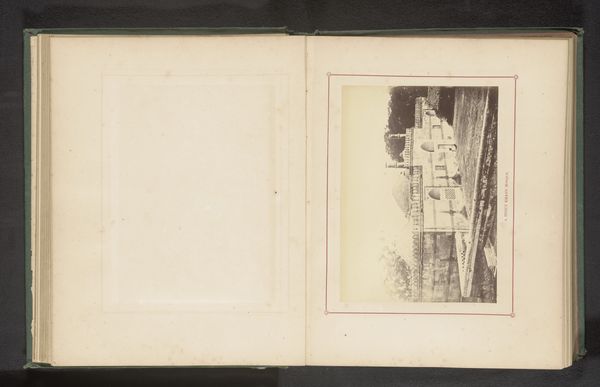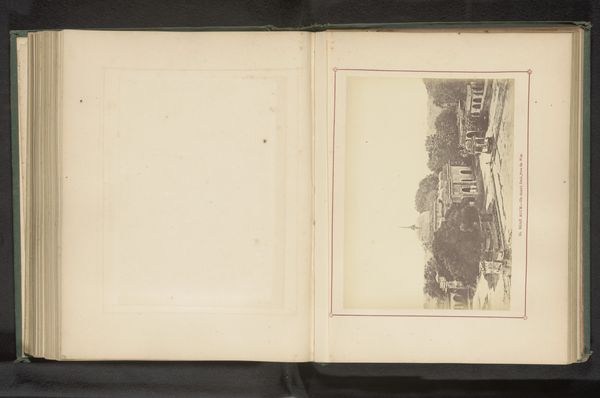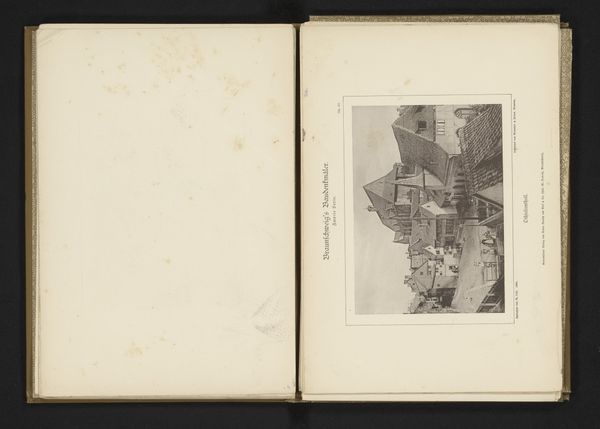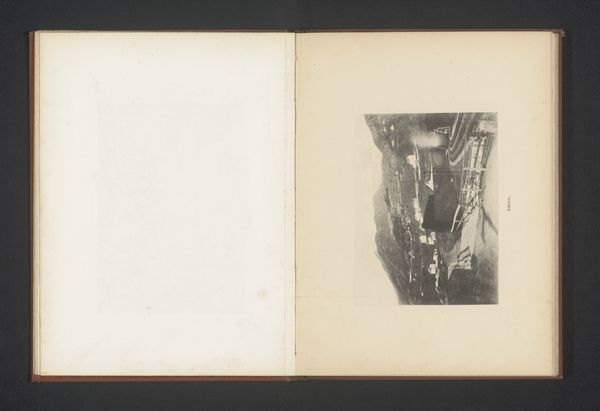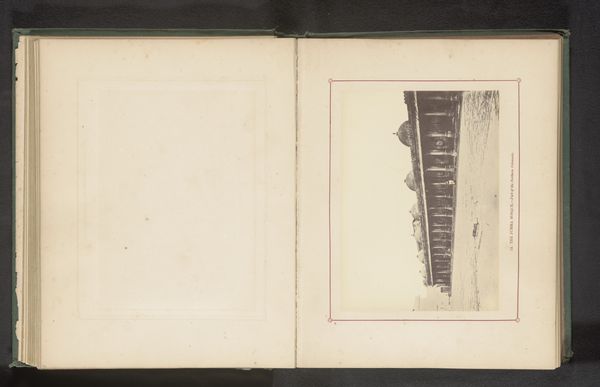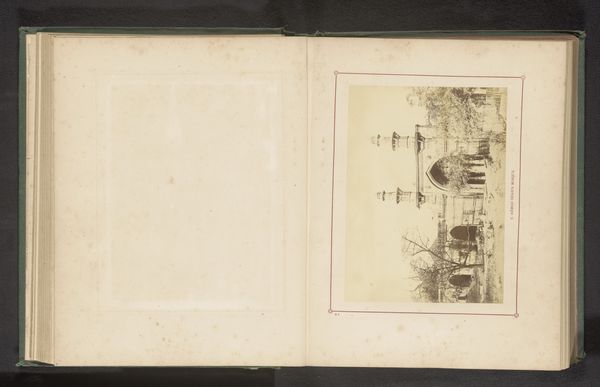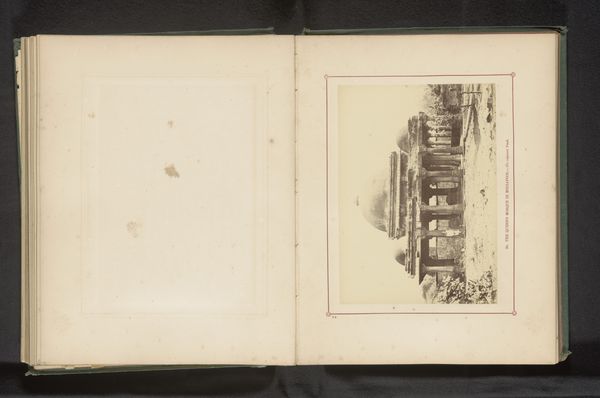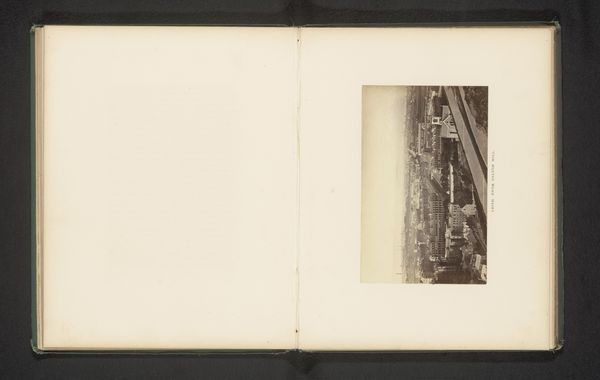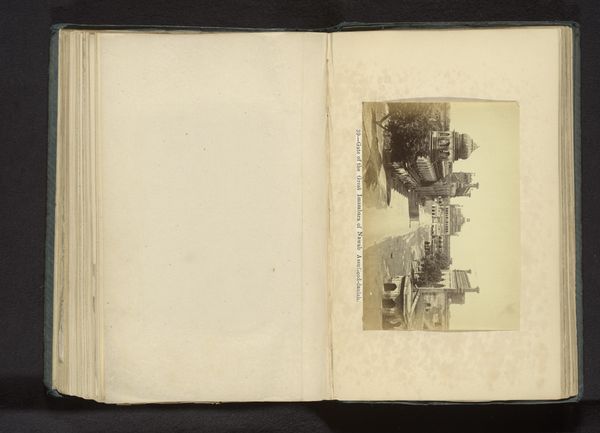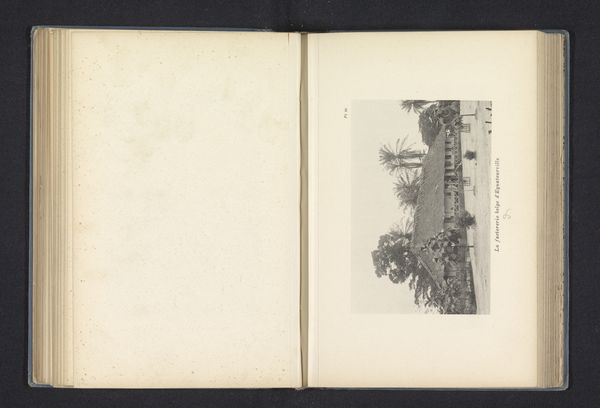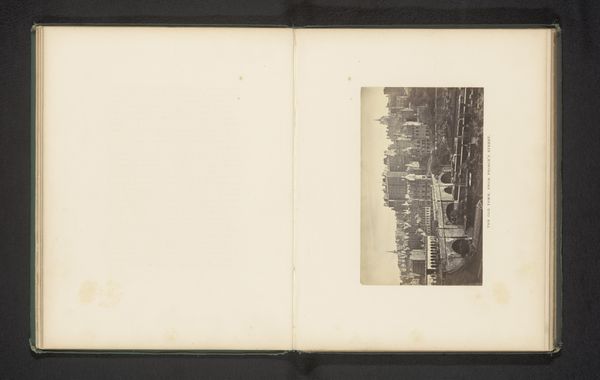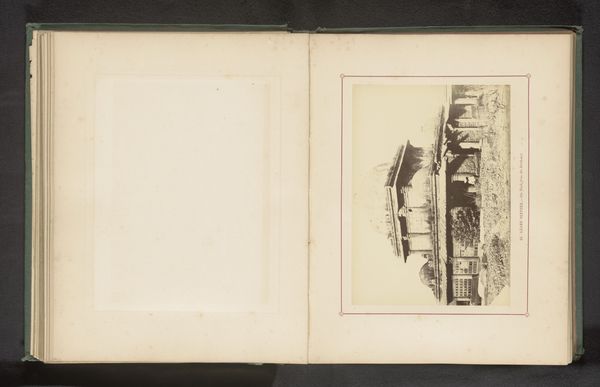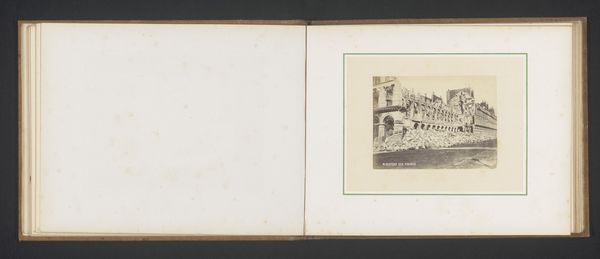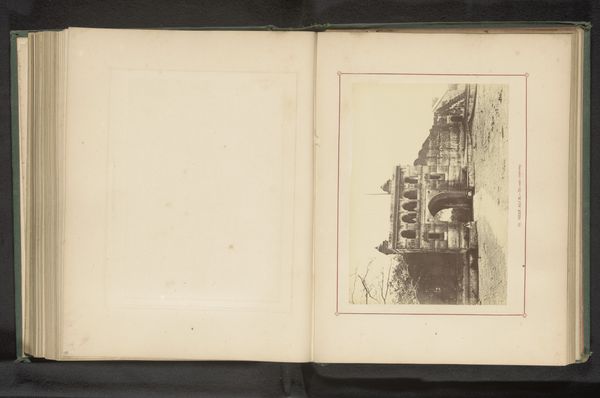
print, photography, albumen-print
# print
#
landscape
#
photography
#
ancient-mediterranean
#
cityscape
#
islamic-art
#
albumen-print
Dimensions: height 136 mm, width 189 mm
Copyright: Rijks Museum: Open Domain
This photograph of the Syud Alum-mosque in Ahmedabad was made by Thomas Biggs. Photography, even in its early days, depended on industrial manufacturing, from the refinement of silver for the light-sensitive emulsion to the production of lenses. The physical properties of these materials defined what the camera could see. Biggs was a master of the collodion process, invented in 1851, which used glass plates to produce negatives. With this technique, photographers could achieve high resolution and clarity. Notice the rich tonality of the image, and the way Biggs has captured the textures of the stone and the play of light and shadow on the building's surface. But his photograph is also a product of its time. In the mid-19th century, photography was often used as a tool of colonial documentation, creating a visual record of faraway lands and cultures. These images contributed to the construction of knowledge about the world, often reinforcing existing power structures. So, when you look at this photograph, consider not only the skill of the photographer but also the social and political context in which it was made.
Comments
No comments
Be the first to comment and join the conversation on the ultimate creative platform.
